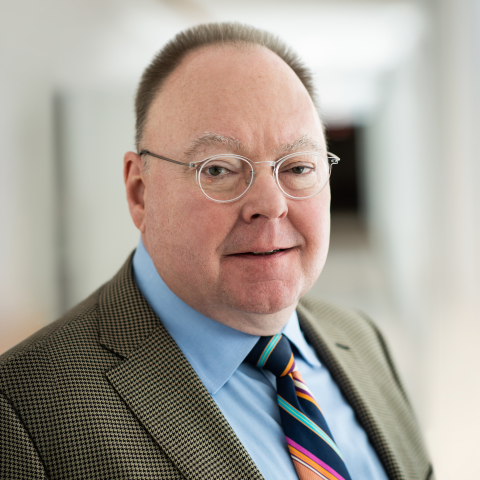Samuel Moyn was born in 1972, which was, in its way, perfect timing. There can be no doubting his youthful precocity; his writing bears traces of it to this day. But even a precocious child of the 1970s and ’80s couldn’t have had much in the way of direct contact with the social and political upheaval that gripped the United States and the West in the 1960s and 1970s—to say nothing of the real-time controversies and choices in the aftermath of the Second World War.
The world emerged from that war horrified not only by its devastation but also by the stark realization of just how awful were the possibilities of man’s inhumanity to man. True, the right side won. But the war itself, the Holocaust, the rapid dissolution of a wartime alliance with the Soviet Union into a Cold War in which the Soviet side pursued a totalitarian form of global ideological and political dominion—all this left serious people wondering whether the horror of mid-20th-century Europe was past, or merely prologue to something worse. The Soviet Union, having established its dominance in Central and Eastern Europe at the end of the war, sent dissidents to the Gulag at home, smashed an uprising in Hungary in 1956, put missiles in Cuba in 1962, and crushed the Prague Spring in 1968.
Moyn, now the Chancellor Kent Professor of Law and History at Yale University, knows this history—as history. But he was about seven years old when the Soviet Union invaded Afghanistan, the Marxist Sandinistas came to power in Nicaragua, and the revolutionary regime of Ayatollah Khomeini took American diplomats hostage in Iran. Did he get to stay up late in the last year of the Carter administration to watch ABC’s America Held Hostage at 11:30 Eastern? I don’t know. What I do know is that by the time Moyn got to college, the Berlin Wall had fallen. And by the time he graduated, Germany was reunited—a geopolitical fact that troubled the sleep only of those on the Soviet side of the wartime alliance that had defeated German fascism less than half a century before. Also during Moyn’s college years, the Warsaw Pact dissolved, the Soviet Union broke up, and the Baltic states and Ukraine (among other former Soviet Socialist Republics) became independent.
Now, if you lived through much or any of what transpired en route to the amazing collapse of the Soviet Union, you might have said something along the lines of “Whew, close call.” Or even, “Thank God.” But if, like the Chancellor Kent Professor of Law and History at Yale University, you missed all that and only read about it later, you can simply take as a given the victory of freedom, democracy, the West, whatever. That’s what happened, after all. And without a glimmer of gratitude or even apparent awareness of what you’re doing, you can move on to your self-admiring excoriation of the supposed intellectual and moral failings of those who took the side of freedom, democracy, the West, whatever.
Liberalism Against Itself, Moyn’s new book, presents the story of how a group of intellectuals—the “Cold War liberals”—struggled to grasp the situation of the world in the two decades after the Second World War and ended up betraying liberalism and the principles of the Enlightenment in a way that fundamentally narrowed the vision of and ambition for human political action in pursuit of progress.
In Moyn’s estimation, Enlightenment-inspired liberalism has yet to recover from this Cold War betrayal and may never do so. Nor does liberalism necessarily deserve to recover, such were the hideous and unnecessary transfigurations the Cold War liberals wrought. All this took place, by the way, even before the Cold War liberal tendency split and “collapsed” into what Moyn views as the sibling depravities of neoliberalism and neoconservatism. The only real hope is that a new generation of thinkers (oh, I see Samuel Moyn has his hand up) will repudiate the narrow vision of Cold War liberalism and attach us to the Enlightenment’s radical faith in human possibility via politics.
Moyn is well-read. But he is less interested in understanding the thinkers he analyzes than in prosecuting the case against them—or rather, against the Weberian “ideal type,” the “Cold War liberal,” he has dragooned them into representing. Many elements of this ideal type will be familiar to anyone with even passing acquaintance with what intellectuals were arguing about in the postwar period. Yes, it is true, many of the thinkers of the day developed a deep antipathy toward collectivism and a regard for individual liberty as the best of the liberal tradition. Yes, among the Cold War liberals, there developed a philosophical “anti-canon” that generally began with Rousseau and extended through Hegel and Marx into its real-world manifestation in Soviet Communism and, especially, Stalinism.
Yes, the Nazi regime, though drawing on different sources as well, did have “totalitarianism” in common with the Soviet Union, in the view of the Cold War liberals. Yes, the preservation of individual liberty against the danger of this totalitarianism looked to be Job One. Yes, the United States was the locus of resistance. And yes, the Cold War liberals saw this as a struggle between good and evil.
They rejected (though I think it’s fair to say they nevertheless feared) the historicist claim that Communism was the inevitable victor in the contest with democratic capitalism or democratic socialism—more broadly between totalitarianism and the “Free World.” They also rejected the relativist tendency of the strain of historicism incapable of drawing a distinction between good and bad in politics. The West, they believed, really was worth preserving on the merits. And they rejected the view that the human being was perfectible through political or any other means. On the question of whether the human was permanently and inescapably dark, they differed. But they had in mind, above all, preserving whatever good there is in the human.
The Cold War liberals, like every generation of intellectuals before or since, also had the intellectual fashions of their times to contend with, as well as ample personal vanities generally stemming from the conviction, not wrong, that they were smarter than everybody else. Moyn pretty much has the same bias in his own favor, which is not supported by the text he has produced. Indeed, Liberalism Against Itself is a shambles in many, many ways—literary, intellectual, political, and especially moral. It’s organized into chapters featuring the names of (I presume) Moyn’s eccentric short list of leading Cold War liberals: Judith Shklar, Isaiah Berlin, Karl Popper, Gertrude Himmelfarb, Hannah Arendt, and Lionel Trilling. In the hands of a deft writer, this approach of connected intellectual profiles can work well—it does in Mark Lilla’s The Reckless Mind, for example. But here, why he chooses these six and not others is murky, and Moyn’s consideration of them spills from chapter to chapter often seemingly on the basis of when something pops into his head. I have edited numerous books, and at around page 25, I found myself grumbling about what a shame it is that nobody edits books anymore. By page 50, I was struck with the harrowing thought that the published version of the book appears after, not absent, heavy editing.
He is a scrutineer of ephemera par excellence. Does it really matter that Hannah Arendt may never have read Judith Shklar’s After Utopia, something Moyn deduces because Arendt’s library contained a copy of the book with no handwritten notations? He includes a reproduction of the typescript contents page of Shklar’s doctoral dissertation, for example. He does so, I think, in an effort to vivify his discussion of how the structure of her dissertation changed from its submission to its publication as After Utopia. There is a kind of filial piety here with regard to Shklar, but in the case of all those subject to his criticism, his scrutiny seems so small-minded that it all but rehabilitates their weaknesses. By the time Moyn is done attacking Lionel Trilling for his embrace of Freud’s dark view of human nature, for example, I was almost ready to give Civilization and Its Discontents a fresh hearing.
But the infamia Moyn pronounces on the Cold War liberals is not, in the main, related to the trivialities that manage to bog down a book of merely 170 pages plus notes and index. Moyn’s indictment is that their fear of the collectivism of Soviet Communism was so exaggerated that they were willing to abandon and attack the more ambitious Enlightenment project of human perfectibility through political action in favor of acquiescence to and defense of an American and Western individualist status quo shot through with injustice.
Let me reframe, as the structuralists say. What this book actually argues, though its author does not know it or want it to be so, is that the Cold War liberals grasped the most pressing moral problem and political challenge of their lifetime with unwavering clarity. They understood that Communism, like Nazism, was evil, and that freedom, which starts with individual liberty, is good in itself, but fragile. They recognized that the ambition on the other side was total—that is, totalitarian—and in hot pursuit of global victory, both ideologically and politically. They sought to thwart this victory as best they could in their area of comparative advantage, the life of the mind. They did so in part by defending the values of individual liberty embodied in the United States and the West but not the Soviet bloc.
Most of them recognized that the actualization of liberty in the West was incomplete, but that its opponents were out to crush it in its entirety. They argued all this out among their intellectual peers while such characters as Dean Acheson and John Foster Dulles were busy elsewhere. And they did all this without knowing whether freedom would persist in the West against a permanent adversary (the optimistic view) or would fall to decadence and a radical onslaught at home or in a nuclear Holocaust.
But Moyn knows how the Cold War turned out, and to him, the outcome seems so obvious that everybody at the time should have been able to see it coming. Facing down an opponent bent on remaking politics into a collectivist enterprise under, say, Stalin’s dictatorship, why stick to a defense of individual liberty against the collective when you could embrace a more positive Rousseauian project of collectively removing the chains in which the human birthright finds itself?
Moyn can imagine no intellectually or morally satisfactory answer to this question. His foray into the writings of his subjects is for the purpose of framing the inadequacy of their stance, not to understand it. Yet there is an answer common to his subjects, one that makes sense in their times and ours. It’s that freedom is often first on the chopping block among those who presume to know and speak in the name of the “general will.” The intellectuals of Cold War liberalism got that right, and their greatest legacy ought to be an awareness of the need to preserve individual freedom while pursuing political improvement, lest the “improvement” take an oppressive, totalitarian, or even genocidal turn. Whatever they got wrong, they were right about that.
A Russian invasion of Ukraine and a Hamas massacre in Israel perhaps serve as a reminder, to those born too late for the last round, that the defense of freedom under attack is a permanent political challenge. Anything resembling progress in politics is contingent on human beings, including intellectuals, rising to the occasion. Surely this should not be beyond the grasp or beneath the amour propre of the Chancellor Kent Professor of Law and History at Yale University.















